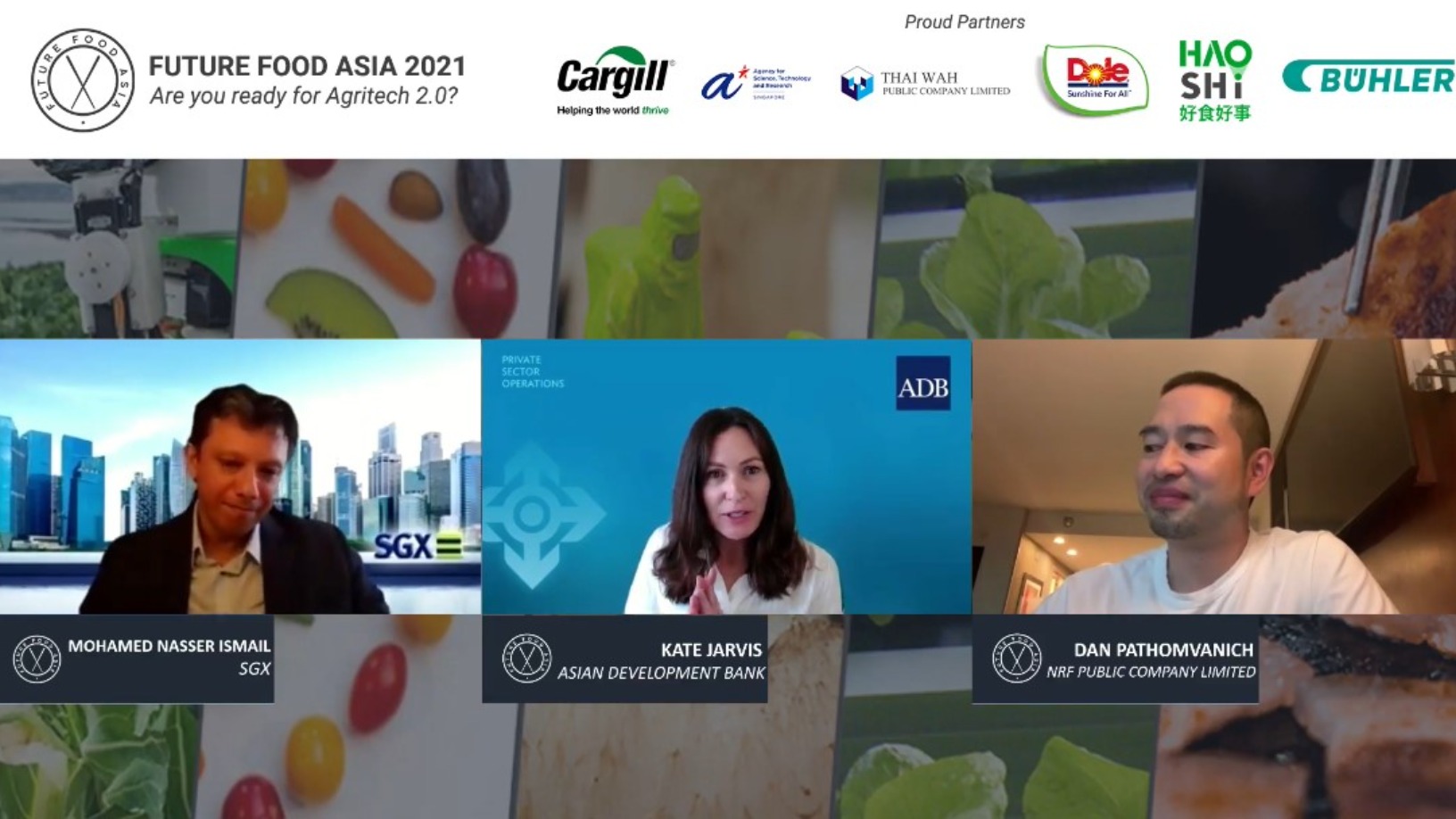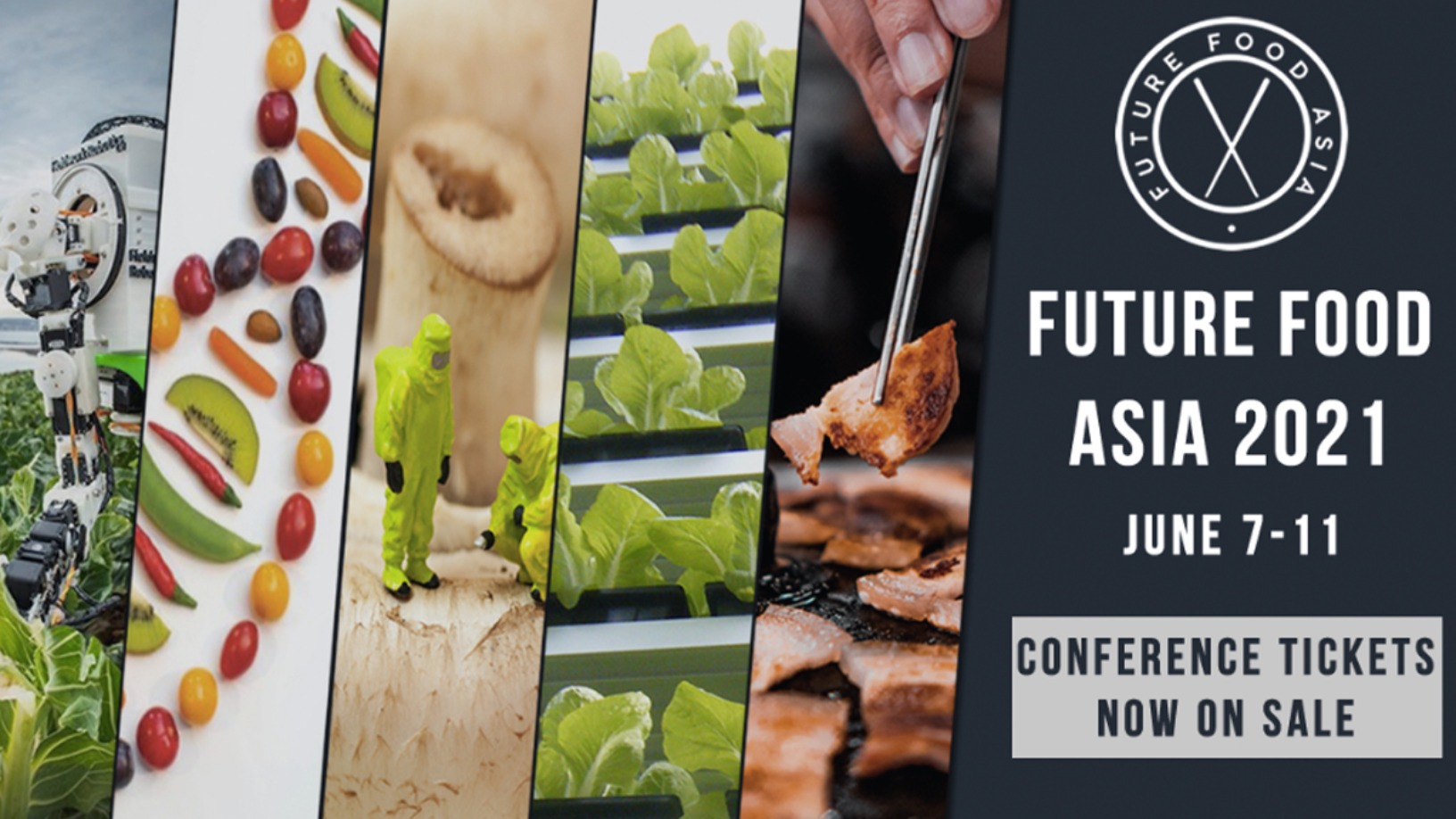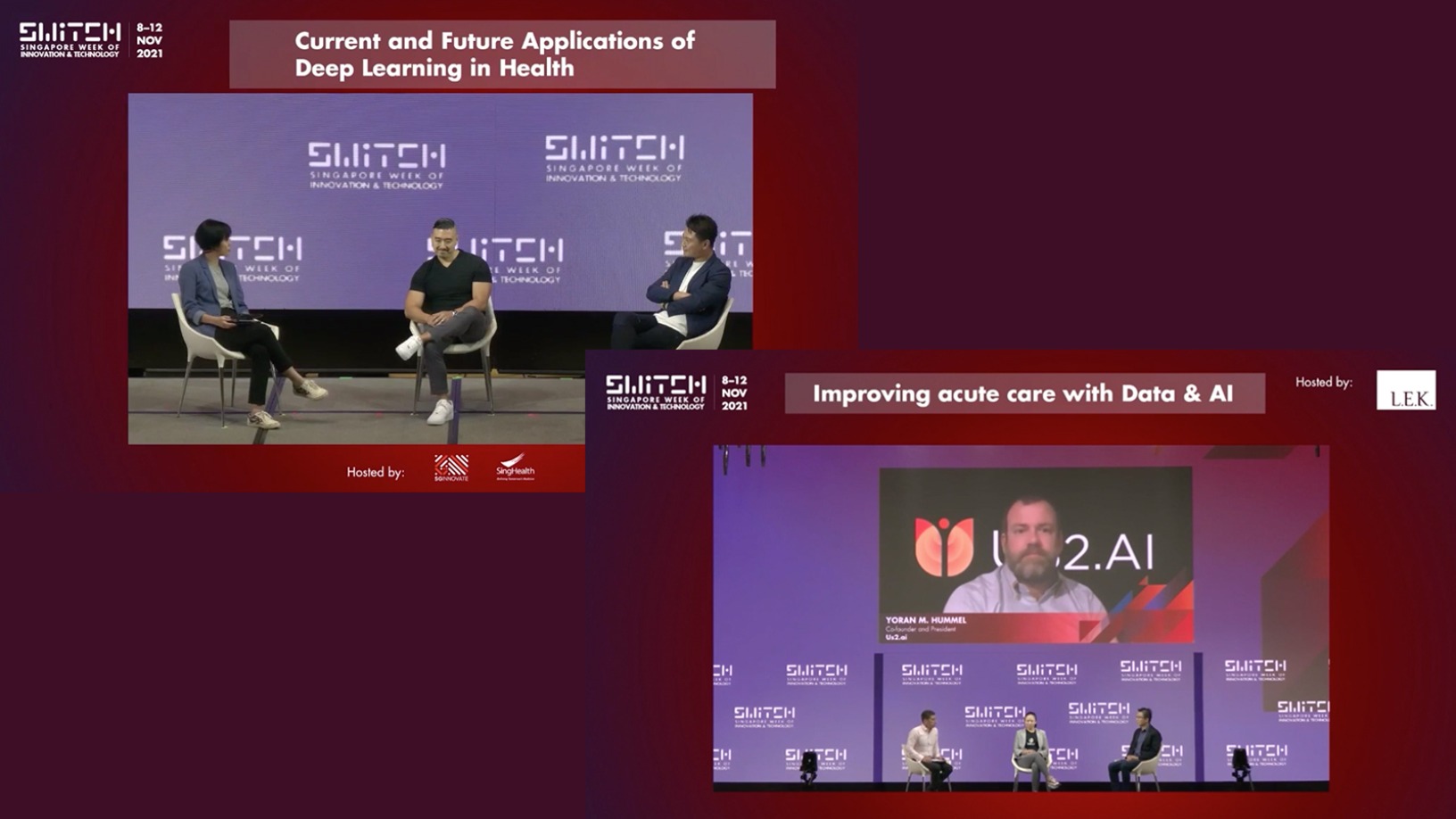Before David Lee joined Impossible Foods as CFO and COO at the end of 2015, there were only big-name companies on his resume, including McKinsey, PG&E Corporation, Del Monte Foods, Best Buy and Zynga. Impossible Foods was little known back then, with no product in the market.
As a person who describes himself as always wanting to be part of a transformation, Lee accepted the offer to join Impossible Foods because he saw the potential for raising capital and creating consumer movements with its future products. After resigning from Impossible Foods in January to join NASDAQ-listed indoor farming company AppHarvest as president, Lee continues his journey to look for transformative opportunities in the agrifood sector, which faces an urgent need for change to feed more people with limited resources.
Lee and Sarah Nolet, General Partner of Tenacious Ventures, had a fireside conversation titled Capitalism for Good: Positive Externalities for Social Good and Financial Well-being on the opening day of the Future Food Asia 2021 (FFA) virtual conference organized by ID Capital from June 7–11. Lee shared views take on the current momentum of the agrifood tech sector and the roles of capital and consumers.
The following discussion has been edited for length and clarity.
Sarah Nolet: Currently, lots of impact investments and government interest are coming in the agrifood tech sector. Do you have any lessons from being part of the journey that has brought you into the agrifood world?
David Lee: One of the biggest lessons for me is the mandate for change equals the amount of potential interest in leadership. In the case of climate change or food, we should never ignore the magnitude of the problems to be solved. The world needs 50% more food by 2050, and we’re using 70% of our freshwater for agricultural production. To feed our population means trying new technology and new leadership models across the spectrum, from seed to plant.
At Impossible Foods, we raised $1.3bn in the five years while I was there and got to launch a new product, and I was surprised how much the capital markets and large corporates were interested in better meat. I am pleasantly surprised that consumers and investors are both awakened to the idea that there's no time to waste. Six years ago, environmental impact and health were among the top 50 reasons to buy a burger of choice, but now it's in the top five. That’s a big and welcome surprise for me.
While you were working in large companies, veggie burgers or alternative protein was barely on anyone’s mind. How did you learn about the Impossible idea, and what made you decide to go to a small company with an idea that wasn't nearly as popular as it is now?
There was a eureka moment. Actually, I began looking for perfect transformative food when I was at Del Monte Foods. I was looking for technology that could create a consumer movement, as capitalism and consumerism are powerful levers required to make social changes. If you can make investors rich and make consumers really happy with a product that changes the world for the better, that’s the fastest path to creating change. But frankly, I hadn't found it for like 10 to 15 years before I stumbled upon Pat Brown, CEO and founder of Impossible Foods. In his business, I found a technology that wasn't just grinding up a bunch of interesting ingredients and pretending that it tasted great. I saw the potential to raise capital and create a consumer movement around a product that was better because of new technology.
Consumers and investors are both awakened to the idea that there's no time to waste.
I like to think that there are many great opportunities to do well in public equity by doing better. Back in the early 2000s, it was hard going. Everyone thought I was crazy when I told them I was going to leave corporate life for a startup that didn't even have a burger in the market. The good news is that there are plenty of great opportunities for leaders looking to make a change.
Is there anything else you looked at at that time that was also a good idea or a bad idea that you passed on?
Earlier in my career, I was trained to look at whether a consumer proposition made sense. Even if a consumer proposition didn't make natural sense, I could first look at things from a consumer lens. And then, if I thought it was a winner, I would ask myself if there was a way to make it work. From a business standpoint, almost all the companies I'd seen until Impossible Foods didn't pass those tests.
What about the difference between big companies that had systems and processes and a startup where you've got to roll up the sleeves and do it yourselves and actually build this engine?
Before joining Impossible Foods, I had been in the job of creating a new business at a large company because the incumbent business was failing, breaking all the rules that hadn't been serving the corporate parent well. When I joined Impossible, we had to create something brand new but didn’t have to face the headwinds of proving that it was better than the incumbent business.
When you've been running big companies, you have all the experiences and playbooks, and it's very easy. Early on, when recreating a brand new business, you prove to yourself that you're worthy by talking about how great the startup is. It's very gratifying to demonstrate capabilities by pointing out what is non-existent. But there's no time to demonstrate it, which is so much more important at large companies where you're elbowing your way in. At a startup, you just got to create it and get it done.
Agrifood tech is different. What are your thoughts on that?
Food is different. Food is visceral, emotional and cultural. We define who we are by what we choose to eat, and that choice in food consumption is different from a widget in any other sector. Food is an everyday part of our lives. And we tend to be in denial that what we choose to eat every day has a massive impact on the well-being of others. Animal agriculture has a profound impact on climate, and we tend to ignore it as food consumers because of the emotional and cultural notion of how we choose to eat. And because of the frequency like three, four or five times a day, it goes under the radar.
Those things are different. Here's what I would say is not different. There is a customer acquisition cost or CAC, and there's lifetime value or LTV. There is also loyalty built on credibility if you give people something they think is delicious. Even if your customer acquisition cost is high, and your LTV is extremely high, you influence through social impact and viral word of mouth in a way that feels a lot like my target consumer tech.
For decades, people in the food industry didn’t think about CAC, LTV and the consumer tech adoption circle because tech has been late in coming to the consumer proposition of making better food. It’s hard to accept the idea that food was created in the hands of a scientist or a technologist but the truth is technology has always been part of food. It's just that we've been focused on elongating shelf life, incrementally better taste and better color, but we’ve never thought about technology remaking food in a changed supply chain because to do so would jeopardize our jobs.
How crazy would it have been for someone to go to the board and say, “Listen, I'm gonna cannibalize our entire company because it's good for growth and the climate and the consumer.” There's a natural desire not to shake or rock the boat. These are things that are unique to food, and I think it's time that we bring them up.
What do you think of aligning with the livestock industry as demand for protein grows, and we've got to feed the population?
My approach is to create a better mousetrap and let the consumer choose the future, and the consumer always does. Just create a better product for those scared of new technology and feel that genetic modification is evil. If you are transparent and have a better product, you can compete on the same playing field, and you can compete for every dollar of capital from all the investors, and you can also give a better return. That's good old-fashioned capitalism. To me, capitalism and consumerism are really powerful forces. If you have technology that happens to make the product better for the world and better for people's health, it’s probably the fastest path to change.
It’s hard to accept the idea that food was created in the hands of a scientist or technologist. But the truth is technology has always been part of food
How would you characterize some of the changes that we've seen in the agrifood industry over the last 10 plus years?
There's no question that being in food and being in technology is suddenly fashionable. Aside from the billions of dollars of capital, we find the world has realized that we got a problem, and technology could be the answer. We’re fashionable. Capital comes with that attention. Many great entrepreneurs will have a bright shiny object that billions of dollars are now chasing. These valuations have been driven up to the point where some of the worthy entrepreneurs won't get funding, or they do at a valuation too high for them to grow further. There are pros and cons. In the end, I am grateful that we're fashionable [because] the problem is so important for us to solve. We will find failures [and] we will find a few successes [but] I’m excited to see more and more momentum in the space.
Those of us in the investing community have been asked many times where the exits are coming from and where the returns are. SPACs are now on the scene. Do you think that it's consistent with what you said before about capitalism for good?
Much like how I defend science in the food industry, I defend SPACs. SPACs are just one mechanism to raise capital. It's no different as if you had done an IPO or a direct listing. To me, it's not a new phenomenon. What’s new is that there's a large number of new SPACs that are hunting for a target in less than two years. It's not that different than when venture capital and growth equity had reached such a status. A SPAC is no different from another important mechanism to fund your future mission and growth. The reality is on the other side of it. You still have to have all the rigor of being a public company, whether you choose SPAC or you do an IPO.
You have to be transparent and operate clearly as a public company. You have to provide real insight into how you did and where you're going. When I was at Impossible Foods, I was asked every quarter by journalists when the startup would go public and how we are doing. I didn't have to tell them. But now, at AppHarvest, I tell the world every quarter how we're doing. That transparency is different, but the operating headset isn't different at all.
What are your thoughts on the opportunities in Asia? It's something that's talked about frequently in terms of the modernizing middle class, feeding the growing population and changing consumer demands. Are those the kinds of opportunities you're seeing?
Asia is incredibly important for anyone interested in a global food business. Asia arguably presents at least, if not greater than, 40% of the meat market business. More importantly, Asia sets both business and consumer trends.
We launched the [Impossible Foods] business in Singapore because we saw the benefit of Singapore’s 30 by 30 initiative. And it's not just Asia. Both Asia and the Middle East are great leaders in technology and food. It’s in part because they need to. Food security used to be an idea; now it's a pragmatic requirement. Great companies and great countries in Asia are quick to recognize it, arguably faster than many other global operations elsewhere. For me, [Asia] is one of the largest components of the global market and the thought-leading part of the market. We are quite active in looking at technology and institutions that are creating leadership positions in Asia.
Asia, as an entity, is a gestalt of individual pursuits. There’s a unique opportunity to create leadership positions, not just in China but in different parts of Southeast Asia collectively. If you think about the real requirements for food production and how they differ by climate, tropical jungle regions for controlled environment agriculture represent an interesting challenge for us [that is] different from in Appalachia in the US. There are some real, tangible, pragmatic reasons why Asia can be quite important for our pursuits.
What’s something that you're excited about in terms of this maybe 2.0 version of agritech, and what are the challenges?
Five years ago, food tech was a very small endeavor. The hardest question we will have to deal with now as business leaders is how we acknowledge that technology has always been part of food and needs to be a bigger part of it. The magnitude of the problem we face is enormous – we simply can't make enough food. We don't have enough resources to do so, which requires new technology. Instead of debating whether GMO is a curse word, we should be open to every technology. The number one product of GMO food is to feed the animal agriculture industry. The majority of the soy that has been GMO altered is produced to feed cattle and other animal agriculture.
Instead of debating whether GMO is a curse word, we should be open to every technology
We can't wait for regulators to push down. For every diabetic who uses insulin, the insulin is made through genetic modification. For most of the cheese consumed in the US and for much of the cheese consumed in the EU, it's made through genetic modification. The truth takes too long to convince consumers, and I don't believe the regulator will catch up. You can tell the consumer the truth. They're pretty savvy.
Everyone said the Impossible burger would appeal only to the coastal elites in the US, but we went nationwide. If you tell consumers exactly what you are making and why you're making it, I believe that betting on the consumers, informing them about the truth of how technology is required for change in food will be productive. Consumers want the truth, and they're demanding it from new brands. I think betting on the consumers is the fastest path to change.
What sub-sectors attract you most? Are the ones you're at now or others that maybe not that active?
I would say the math of production and how we operate as companies are interesting to me. At AppHarvest, we're not just making a better product using a fraction of the world's resources and creating a renaissance in the heart of coal mining country [Lexington], creating living wages for non-migrant laborers. As a public company, we can reward our investors and really do good. I'm interested in that for the growing part of the supply chain, from seed to plant. I'm interested in Benson Hill creating future plant proteins for the world as part of that change. I'm interested in all creativity throughout the supply chain, and the reason is the magnitude of the problem we face. So there's no shortage of great mission-oriented opportunities.
This is the right time to have a conference like this. Because despite our trendiness, there aren't enough high-quality companies being funded and can go global. For me, there are a lot of really overvalued companies. Maybe two or three of the 100 companies I’ve looked at can be global juggernauts.
CompassList is an official media partner of Future Food Asia 2021











